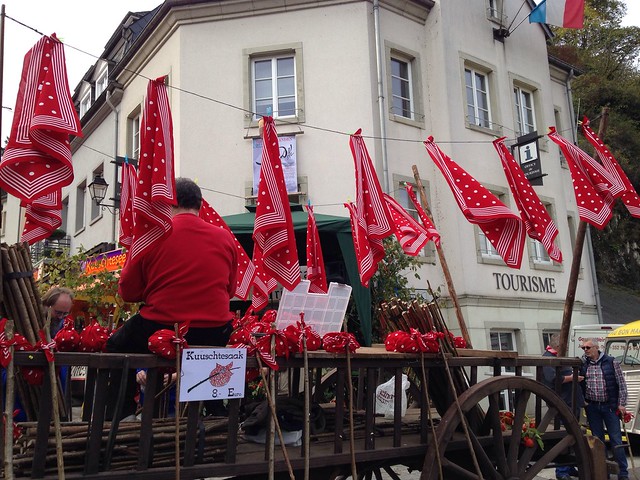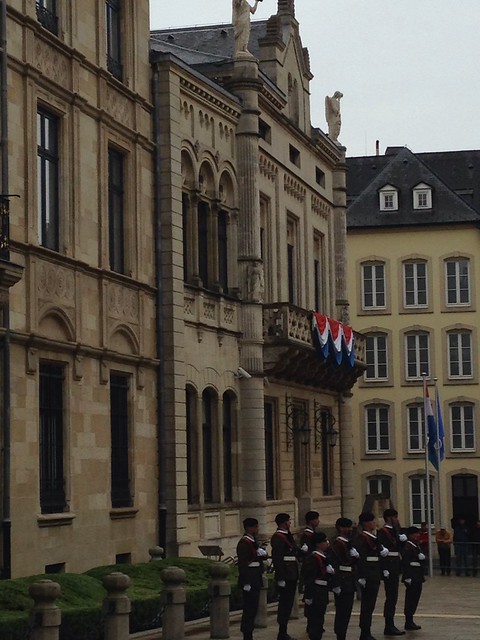
After spending the 2014-2015 academic year in Luxembourg as a Fulbright English teaching Assistant, what I have primarily learned is that examining oneʼs own perspective can be a path to understanding a different point of view.
Most of my students at the University of Luxembourg and the Lycée Classique de Diekirch (the equivalent of high school in the United States), already held an advanced level of English, and so my position was focused on teaching literature, culture, and critical thinking rather than just language. My first shock came right away in September when I began working with the university students by grading their American Studies response papers. I was immediately confronted with the strongly negative stereotyped views many students held regarding Americans and American culture.

My mentors for this experience, a professor at the university and a teacher at the high school, provided me with invaluable guidance in helping the students develop a more nuanced understanding of cultural issues. While being confronted with stereotyped views was frustrating, I eventually realized that these stereotypes were best combated by finding ways of helping the students question their assumptions and consider perspectives and opinions different from their own. My goal was not to change their personal opinions, but rather to help them understand how another person could have a different point of view. The professor I worked with at the university suggested asking the students questions rather than contradicting their beliefs about the US. Taking her up on this advice helped me realize the importance of leading the students to question their own assumptions instead of providing an immediate “right” answer.

One of the most compelling strategies the teachers I worked with used to engage the students in a more complex examination of culture was simply talking about Luxembourg. These conversations not only taught me much about the culture of my host country, but helped the students understand and relate to American culture. By considering their relationship to the stereotypes of Luxembourgish culture, many students intuitively realized that being part of a culture does not necessitate agreeing with everything that culture might stereotypically represent. While a country smaller than the state of Rhode Island might initially seem to have little in common with the US, approximately 60 percent of Luxembourgʼs residents have an immigrant background, and therefore Luxembourgʼs culture has been shaped by this heritage, like the US. Because of this similarity, talking about the experience of immigrating and cultural challenges surrounding immigration particularly engaged my students, some of whom were able to strongly relate to the material due to their familiesʼ own experiences.
While I arrived in Luxembourg planning to teach American culture to my students, I ended up learning as much, if not more, from them as what I taught, not only about Luxembourg, but about teaching, the US, and my own perspective as well.
– Rose DuCharme
2014-2015 Fulbright English Teaching Assistant in Luxembourg